In March, I traveled with another eH volunteer to visit Jenny Pong Siew Chin. We went to interview Jenny and videotape portions of her daily life for a documentary on inspiring Malaysian women called “Portraits of Perseverance” directed by the Executive Director of eHomemakers (eH), Chong Sheau Ching (Ching Ching).
Prior to meeting Jenny, I knew that her legs were amputated over twenty years ago and that she moved around her house by pulling herself on a trolley. I wasn’t sure what to expect though and I was a bit nervous to meet someone who was living under such extreme circumstances.
When we arrived, Jenny welcomed us in with open arms. She was extremely hospitable, upbeat, and open. I was in awe of how much positivity she exuded in the face of all the unfathomable circumstances she’s lived through.
Over the course of the day, I learned more about Jenny’s road to recovery and daily life. She is one of the most extraordinary women I’ve ever met.
Jenny shared how after her legs were amputated, she entered a different world with new challenges. When bathing, ants and insects would often bite Jenny’s stumps. It was only when her mother discovered the bites that Jenny realized she had been attacked. Feeling frustrated and distraught by her body’s immobility and loss of sensitivity, Jenny experienced a range of emotions and her temper often flared. Her anger towards her disability was compounded by her disappointment and confusion over her husband’s decision to abandon their marriage during the time she was in a coma.
*Click on photos to enlarge.
With her mother’s support, Jenny started overcome her anger and depression. She committed herself to developing ways to live with independence and pride. Her mother taught her how to do her daily chores in new ways; now Jenny cooks simple meals, like eggs, on burners placed on the ground, washes her hair using a hose in the kitchen, and pulls herself from the trolley to her bed at night.
Eager to become more self-sufficient and earn an income, Jenny was referred to the Salaam Wanita eco-basket project. She attended trainings, but weaving the baskets required too much arm strength and was too strenuous for Jenny. eHomemakers provided her with computer training as well, but looking at the screen for too long made Jenny dizzy.
Instead, Jenny found work making Chinese funeral shoes, which people buy as a customary offering to the deceased. Jenny has been putting together the paper shoes for over 20 years and recently received a raise from .12 Malaysian cents per pair to .18 Malaysian cents. When she feels healthy, she can make up to 150 pairs of shoes per day, which earns her about $9 USD.
While Jenny’s income is meager, she is grateful she has a job. Unfortunately, her ability to work fluctuates as she is in and out of the hospital for check-ups and treatments. She has leukemia, kidney problems, diabetes, and chronic pain in her spine. At only 43 years old, she has also had a heart attack.
Jenny has serious health and economic concerns, yet she hardly acknowledged them when we went to visit. Rather, she smiled from ear to ear as she discussed the work she does as the voluntary President of The Hope Era, a society for special citizens, in Ipoh, Malaysia. She spends hours organizing meetings, planning events, and working to improve the quality of life for the Society’s 100+ members. Jenny is under doctor’s orders to reduce her stress and to relax more, but she continues to work hard to help the Society’s members. In her view, her own health and well-being is equally important to those of her society members.
Over the years, Jenny has developed a relationship with Ching Ching. Ching Ching has used her eH network to find furniture for Jenny’s house and raise funds for her medical expenses. Ching Ching’s biggest aspiration has been to find an engineer to develop a hydraulic chair to help Jenny move around her house more easily. Within the past year, an engineer from Singapore has offered to build the chair and is now making trips to Malaysia to determine how he can best assist Jenny.
In the meantime, Jenny remains focused on her work with The Hope Era. After meeting Jenny, I am sure her society members have learned invaluable lessons from her enduring optimism in the most extreme circumstances. I know I have.
Jenny will be featured in an upcoming documentary on inspiring women in Malaysia called Portraits of Perseverance. eH Executive Director Chong Sheau Ching is the creative mind behind this film.
Posted By Maria Skouras
Posted Jul 6th, 2011


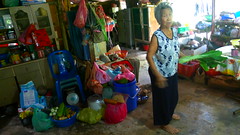
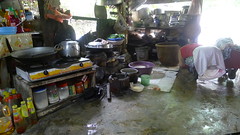
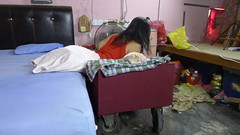
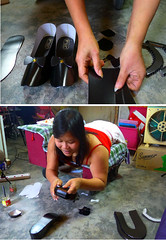
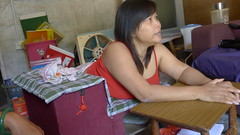
3 Comments
Jenny Pong Siew Chin – Overcoming Tragedy | Maria Skouras
July 6, 2011
[…] Visiting Jenny Pong Siew Chin […]